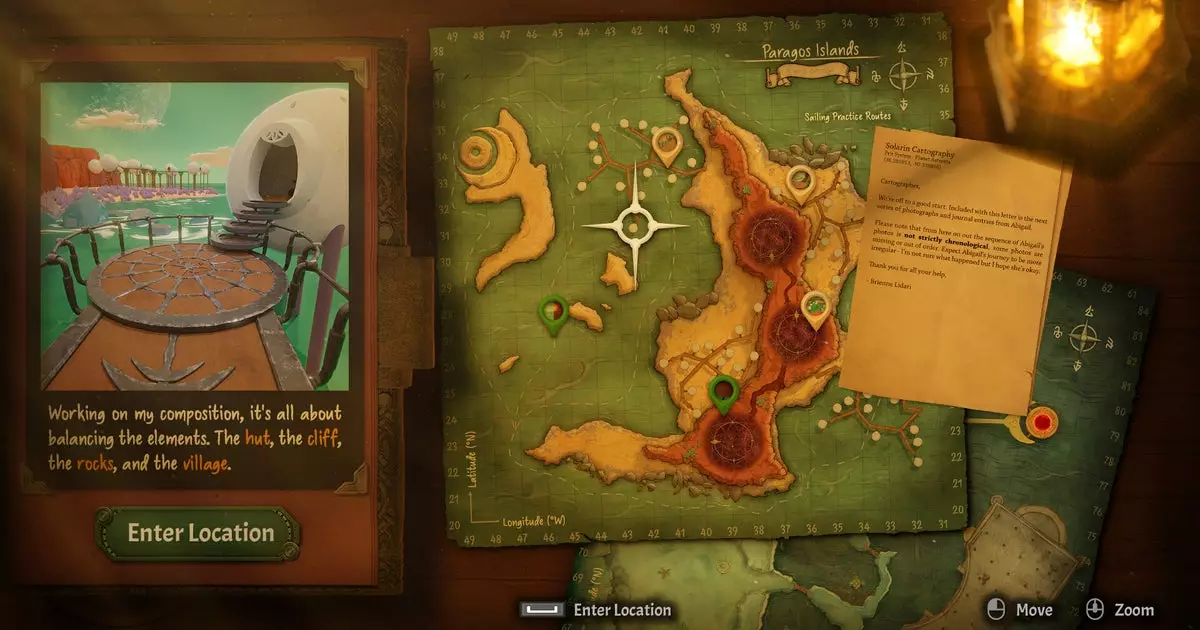In the realm of indie gaming, few experiences captivate the imagination like locator—a striking detective puzzler that marries the thrill of exploration with the cerebral challenges of deduction. Players take on the role of an interstellar cartographer whose mission is to track down a missing archaeologist named Abigail Lidari on a vibrant alien planet. The game’s premise draws inspiration from familiar formats, notably the popular geography game Geoguessr, but takes it a step further, introducing a narrative layer that evokes empathy and curiosity.
The core gameplay mechanics of Locator are both engaging and thought-provoking. Players are armed with a series of photographs and Abigail’s cryptic journal entries that serve as clues to her whereabouts. The task involves scrutinizing the imagery and notes to accurately pin down Abigail’s location across beautifully rendered maps. At first glance, the challenge appears straightforward: recognize landmarks and make educated guesses about her position. However, as players dive deeper, they encounter a more complex interplay of logic and intuition.
Visually appealing landscapes serve not only as backdrops but as puzzles in their own right. Each environment embodies unique features that provide rich information, from bizarre alien wildlife to quirky architectural structures. Players are compelled to think critically about spatial relationships and how Abigail, in her isolation, might perceive this otherworldly terrain. The game thus encourages an imaginative leap, inviting players into an empathetic space where they experience the journey from Abigail’s perspective.
Locator is more than just a collection of puzzles; it is an exploration of human curatorship over knowledge, spaces, and emotional landscapes. The term “cartographer’s folly,” which refers to fictitious entries in maps, becomes particularly intriguing in the context of this game. As players create a mental map of Abigail’s journey, they grapple with the idea that their interpretation may distort the truth, reminding them that the constructed representation of a journey does not parallel the emotional heft of the experience. This adds a dimension of philosophical reflection, encouraging players to consider the nature of representation and reality.
Quotes like Alfred Korzybski’s “the map is not the territory” resonate throughout the gaming experience, prompting reflection on how language and semantics mediate understanding. As players navigate through this game, they engage in a layer of introspection, acknowledging the limitations of their interpretative models.
As anticipation builds for Locators’ release, there is a palpable excitement about its potential impact on the gaming landscape and narrative-driven experiences. Though no release date has been announced, the promise of engaging gameplay and an emotionally rich narrative suggests that Locator could redefine player engagement within the detective puzzle genre. As such, it bids to attract not only fans of captivating cartography but also those seeking a deeper emotional connection in their gaming adventures. Ultimately, Locator stands as a testament to the intricate dance between exploration, emotion, and the human experience across the universe.


Leave a Reply
You must be logged in to post a comment.